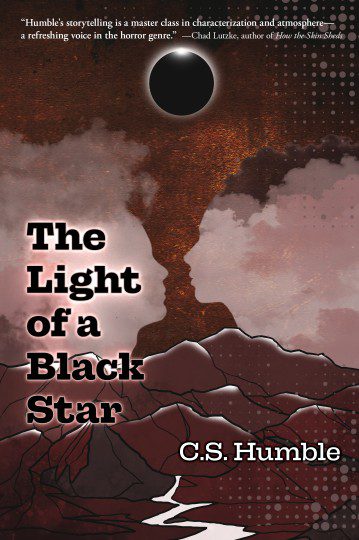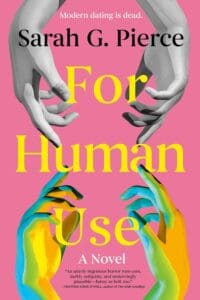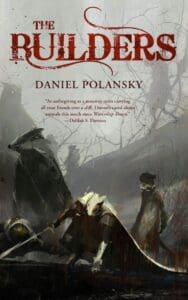
Synopsis
It is 1872.
Annie Miller and the valiant members of the Peregrine Estate did all they could in Chicago to try and stop the Society of Prometheus from unleashing their terrible gods—The Nine—into our world. While they managed to save Carson Ptolemy from the occult society’s ritualistic sacrifice, they failed to stop the ritual entirely. And thus, the ritual half-completed, an unknowable celestial body has set itself over the Sun, casting it into perpetual eclipse, throwing the world deeper into the shuddering cold and blackness of an unending, pestilential winter.
The sunless world brings to bear the great and terrible armies of The Red Kingdom, the hidden body of vampires who have decided that the eclipse is heralding their time to rise in full force and conqueror. The kingdom’s sovereign monarch, and master of all vampires, Kristian, brings all his strength to bear out of the Astolat Mountain range in Colorado, beginning a war between humanity and vampires.
Annie and Carson, their lives now fully knotted together as members of the Peregrine Society and dear friends, work together with their allies to strike back against the vampiric horde, all while striving to set the world right in an epic conclusion of C.S. Humble’s That Light Sublime trilogy.
Review
Over the course of the first two books of the That Light Sublime series, C.S. Humble has carved out a remarkable niche in the horror world. He’s created a world that is one part American Western, a mythic world in which salt-of-the-earth heroes rise up against both landed oligarchs and supernatural beings, riding out at dawn with iron at their hips and little certainty of success. The other part is pure horror fantasy that rivals the world-building of the masters. It’s a world of secret societies, cosmic portals that draw elder gods, and a massive army of vampires living deep in the Colorado mountains.
What’s remarkable is how perfectly these two world seem to mesh. Of course, much of what we think of when we think of the Western is already myth, dreamed up by the John Fords and Louis L’Amours of our cultural past. The America of the Western doesn’t really exist within any borders, and it never did.
So, it doesn’t take much to extend that mythology to include the occult, complete with black manuscripts, Lovecraftian outer gods, and vampire armies. In fact, it feels almost natural.
Of course, any such experiment would be doomed from the start if Humble didn’t put all of his energy into his. most precious resources: his characters. Over the course of the series, we come to know many sharply drawn, immediately vivid characters, and many of those characters haven’t made it to the end, but the series’ heart has always been Annie Miller and Carson Ptolemy, two characters we meet first an mere children who are now, as the series closes, grown, battle-tested, marked by traumas, and fiercely in love.
The Light of a Black Star wastes little time before getting down to the story that has been percolating throughout the series, often sidelined by the more human drama: the rise of the Red Kingdom, a vampire army led by Kristian, an ancient king beneath the mountain. Unfortunately for our heroes, and for humanity in general, a mishap with the fabled Black Manuscript has left the world in a kind of permanent midnight, the sun eclipsed by occult forces, the world falling into perpetual winter. This is just the turn of events the Red Kingdom has waited centuries for. Without the sun to drive them underground, they are free to venture out, gathering humans, who they see as only cattle, and plotting the overthrow of human society.
If that sounds like a pretty hefty plot for a weird western, you’re not wrong.
One thing that this final installment proves is that Humble is more than capable of handling a large-scale story, and as the book propels our heroes toward a final battle between good and evil, one is reminded of masterpieces such as King’s The Stand or, dare I say it, Tolkein’s Lord of the Rings.
There’s an overwhelming air of tragedy and sadness that permeates these books, even in the happiest moments, and a reader quickly learns to mourn favorite characters, and a lot of that can be traced right back to that mythical West, where the outnumbered gunslinger steps out at high noon to face his fate. Humble’s translation of that mood to a horror fantasy setting is brilliant and brilliantly effective.
The prose here, and throughout the series, is lyrical and evocative, highly figurative, and always pressing the bounds of sentimentality while staying just this side of it. But what is truly striking and surprising is the book’s absolute humanism. Here, Humble takes the classic battle between good and evil and transforms it into something that, while still bloody and tragic, need not necessarily end in genocide or subjugation.
In the end, the books are less interested in reveling in the darkness, except in how that darkness helps set off the best in humanity, and in that way, the book is overwhelmingly hopeful. It stands as a monument to humanity’s better nature, a hymn to the light. And it is truly sublime.








Leave a Reply